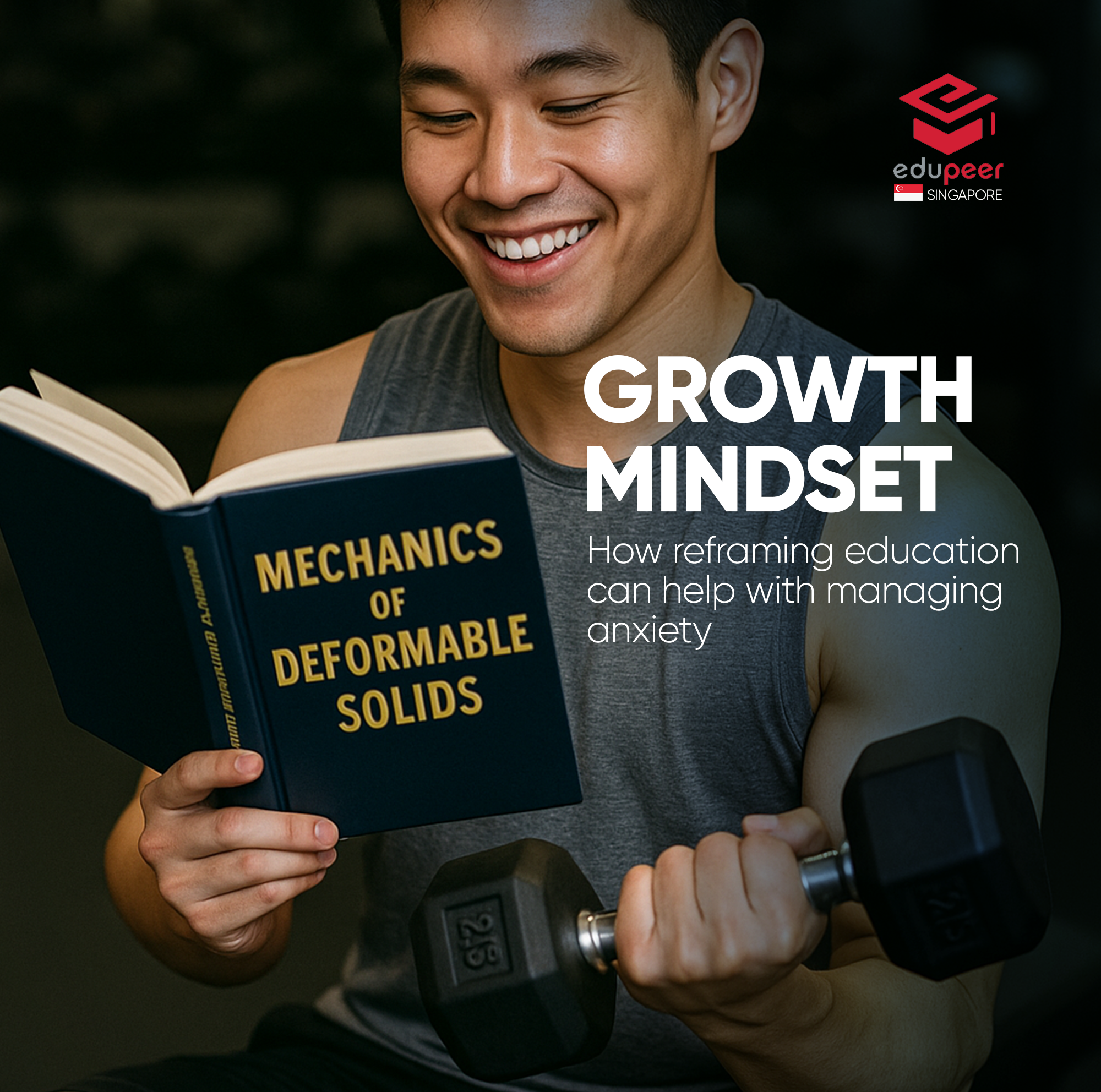
24 Sep Training the Mind: How a Growth Mindset Helps Manage Anxiety
In today’s world, education can feel like a relentless race. Students worry about test scores, parents worry about performance, and the cycle of anxiety grows stronger with every exam season. Yet beneath all this stress lies a crucial question: what is education really for? If we reframe education not as a high-stakes contest but as training for the mind—a way to develop resilience, curiosity, and adaptability—then the pressure to achieve perfection begins to loosen its grip. This shift in perspective, known as adopting a growth mindset, has the power to transform both learning and mental health.
Understanding the Growth Mindset
Psychologist Carol Dweck first coined the term “growth mindset” to describe the belief that intelligence and abilities can be developed with effort, good strategies, and persistence. This stands in contrast to a “fixed mindset,” where people believe their talents are innate and unchangeable.
For students stuck in a fixed mindset, every grade feels like a verdict: an A means you’re smart; a C means you’re not. Anxiety naturally follows, because mistakes seem like threats to self-worth. But with a growth mindset, challenges and mistakes are reinterpreted as opportunities. A low grade is not a sign of failure, but feedback pointing toward the next step in improvement.
Anxiety and the Education System
Anxiety around grades is not trivial. Studies show that performance anxiety can impair memory, lower concentration, and ironically, hurt the very performance students are desperate to improve. Parents, too, often feel trapped—pushing their children for results while worrying about long-term wellbeing.
The problem is not only the tests themselves but the meaning attached to them. When education is framed as a competition where the “winner” is the top scorer, anxiety flourishes. But when framed as mental training—like exercise for the brain—the stakes change. Just as muscles grow through strain, the mind strengthens through challenge.
Reframing: Training the Mind, Not Proving the Self
Imagine reframing every assignment as a workout. Some days you lift heavier, some days you stumble, but all the effort contributes to building strength. With this metaphor, students see themselves as athletes in training rather than contestants in a judgment arena.
This framing reduces the fear of failure. A missed answer on a math test becomes like missing a shot in basketball: feedback that informs the next practice, not a permanent label of incompetence. Over time, this perspective cultivates resilience. Anxiety diminishes because every outcome, whether good or bad, serves a purpose in growth.
Practical Strategies for Parents and Students
Shifting to a growth mindset requires conscious effort, but small daily practices can make a significant difference.
-
Celebrate Effort, Not Just Results
When parents praise persistence, creativity, or strategy rather than grades alone, children learn to value process over outcome. “I’m proud of how hard you worked on that problem” has a very different psychological effect than “You’re so smart.”
-
Normalize Struggles
Remind children (and yourself) that difficulty is part of learning. Share stories of famous figures—scientists, writers, entrepreneurs—who failed multiple times before achieving success. This helps students see setbacks as part of the bigger picture.
-
Practice Reflective Learning
After assignments or tests, encourage reflection: “What did I learn? What strategy worked? What could I try differently?” Reflection shifts the focus from judgment to growth.
-
Create Safe Learning Environments
Whether at home or in school, foster spaces where questions and mistakes are welcomed. Anxiety drops dramatically when students don’t fear ridicule or punishment.
-
Mind-Body Balance
Anxiety management is not purely mental. Adequate sleep, exercise, and mindfulness practices like breathing exercises help students approach challenges with calmer minds. Education becomes less about survival and more about thriving.
Fixing Eyes on the Bigger Picture
Grades matter, but they are not the whole story. Employers today increasingly value creativity, adaptability, teamwork, and problem-solving—qualities nurtured by a growth mindset, not a fixation on perfect scores. By encouraging children to see education as preparation for life, not just exams, we can redirect focus toward long-term success.
Consider the difference: A student who views learning as memorizing facts to ace an exam may achieve short-term gains but will likely burn out. Another student who sees each lesson as a way to sharpen problem-solving, resilience, and adaptability is building lifelong tools. The first sees education as judgment; the second, as empowerment.
Reframing Together as Families
Parents and children can approach this journey as partners. When parents admit to their own anxieties about grades and reframe them, they model resilience. Conversations shift from “You must score higher” to “What did you learn today? How did you grow?” This collaboration not only reduces stress but strengthens family bonds.
Education for Life, Not Just Exams
At its core, education is not about producing perfect transcripts but about shaping curious, capable, and resilient individuals. By framing education as training the mind, we can reduce anxiety and empower students to embrace the bigger picture. Grades may open doors, but mindset determines how far one walks through them.
The growth mindset is not about ignoring results; it’s about contextualizing them. A poor grade does not diminish intelligence; it highlights an area for further training. A strong grade is not just a medal; it’s evidence of progress in a longer journey.
When students, parents, and educators adopt this perspective, anxiety shifts into energy. The focus is no longer on sweating the small stuff but on cultivating a lifelong capacity to learn, adapt, and grow.
At EduPeer, we can help you with all your college admission needs, from choosing the right country and subjects for you to college lists, resume building, interview preparation and much more. Book a free consultation by clicking on the button and filling in the details below.


